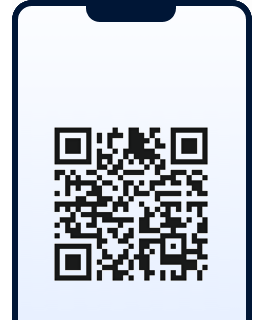New FAQ Page 2 - ஆர்பிஐ - Reserve Bank of India
 IST,
IST,
ப்ரீபெயிடு பேமெண்ட் இன்ஸ்ட்ரூமெண்ட் (பிபிஐ–க்கள்)
Ans. In case of PPIs issued by banks and non-banks, customers have recourse to the Reserve Bank - Integrated Ombudsman Scheme, 2021 for grievance redressal. This scheme is available on the RBI website at the link - https://cms.rbi.org.in.
Ans. It is mandatory for non-bank PPI issuers to send an SMS alert to the customer for any payment transaction in his / her account. In addition, an e-mail alert may also be sent, wherever registered. The transaction alert should have a contact number and / or e-mail id on which the customer can report unauthorised transactions or notify the objection.
Ans. Non-bank PPI issuers shall provide customers with 24x7 access via website / SMS / e-mail / dedicated toll-free helpline for reporting unauthorised transactions and / or loss or theft of the PPI. Further, a direct link for lodging of complaints, with specific option to report unauthorised electronic payment transactions shall be provided by non-bank PPI issuers on the mobile app / home page of their website / any other evolving acceptance mode.
Ans. The ‘per transaction customer liability’ in such cases will depend on the number of days lapsed between the receipt of transaction communication by the customer from the non-bank PPI issuer and the reporting of unauthorised transaction by the customer to the non-bank PPI issuer. If the issuer is reported within three days’ of receiving of communication, the customer liability will be zero. Similarly, for any such transaction reported between four and seven days of receiving of communication, the customer liability will be limited to a maximum of ₹ 10,000/. Reporting beyond seven days’ time will be dealt in accordance with the Board approved policy of the non-bank PPI issuer.
Ans. In cases where the loss is due to negligence by the customer, such as where he / she has shared the payment credentials, the customer will bear the entire loss until he / she reports the unauthorised transaction to the non-bank PPI issuer.
Ans. Any loss occurring after reporting of the unauthorised transaction shall be borne by the non-bank PPI issuer.
Ans. The non-bank PPI issuer shall credit (notional reversal / shadow reversal) the amount involved in the unauthorised electronic payment transaction to the customer’s PPI within 10 days from the date of such notification by the customer. Such reversal has to be effected even if it breaches the maximum permissible limit applicable to that type / category of PPI. The credit shall be value-dated to be as of the date of the unauthorised transaction.
Ans. Small PPIs can be of two types:
-
PPIs upto ₹10,000/- (with cash loading facility). These PPIs shall be converted into full-KYC PPIs within 24 months.
-
PPIs upto ₹10,000/- (with no cash loading facility).
Ans. Both types of Small PPIs are reloadable and shall be used only for purchase of goods and services. Their salient features are as follows:
PPIs upto ₹10,000/- (with cash loading facility):
-
The amount loaded during any month shall not exceed ₹10,000/-;
-
The total amount loaded during the financial year shall not exceed ₹1,20,000/-;
-
The amount outstanding at any point of time shall not exceed ₹10,000/-;
-
The total amount debited during any given month shall not exceed ₹10,000/-;
-
These PPIs shall be converted into full-KYC PPIs within 24 months; and
-
Loading / Reloading can be by cash or electronic means.
PPIs upto ₹10,000/- (with no cash loading facility):
-
The amount loaded during any month shall not exceed ₹10,000/-;
-
The total amount loaded during the financial year shall not exceed ₹1,20,000/-;
-
The amount outstanding at any point of time shall not exceed ₹10,000/-;
-
Loading / Reloading shall be from a bank account / credit card / full-KYC PPI; and
-
The Small PPIs (with cash loading facility) existing as on December 24, 2019 can be converted to this PPI, if desired by the PPI holder.
Ans. A Small PPI (with cash loading facility) can be held for a maximum period of 24 months only. The 24 months shall be counted from the day of opening such a PPI. Within this period of 24 months, it has to be converted into a full-KYC PPI failing which, no further credit in such PPI shall be allowed. However, the PPI holder shall be allowed to use the available balance.
கடைசியாக புதுப்பிக்கப்பட்ட பக்கம்: null
கடைசியாக புதுப்பிக்கப்பட்ட பக்கம்: null











